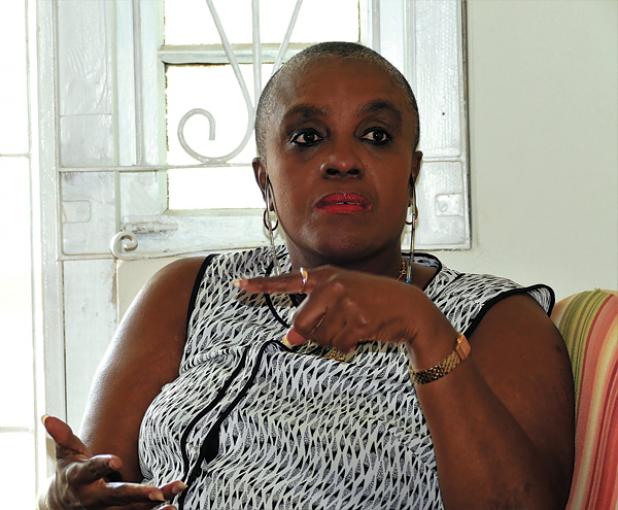NGO SECTOR AT A CRITICAL JUNCTURE
 The non-governmental organisation (NGO) sector is needed now more than ever, and concerted efforts must be made to ensure that the future of entities operating in that sector do not become another casualty of the COVID-19 pandemic.
The non-governmental organisation (NGO) sector is needed now more than ever, and concerted efforts must be made to ensure that the future of entities operating in that sector do not become another casualty of the COVID-19 pandemic.
NGO Management Specialist, Shelley Weir says that the pandemic has shown just how vulnerable the sector in this country is, and she is concerned that unless steps are taken to get the sector on sound footing, all the good work they do in respect of health care and assisting vulnerable and at risk groups, will be for naught.
“The NGO Sector in Barbados is not well organised; it is not well organised nor recognised. The evidence I would use to support that statement, is the response to COVID, where you had so many people, which was absolutely necessary, jumping in to lend assistance, but not in a systematic way. If the role of NGOs was truly appreciated and respected, some of the funding and assistance could have been filtered through existing NGOs, rather than people thinking they had to set up their own thing and operate in their own corner in order to satisfy needs,” she said in an interview with The Barbados Advocate.
She said while some NGOs were perhaps called on to help identify the needs of those they represent or advocate for, this was not a common trend across the sector and likely resulted in a duplication of effort, which she is certain resulted in some people falling through the cracks.
“NGOs represent the vulnerable in society and straight away you would have had a quick assessment of those who would really need assistance. But having not drawn on their expertise as should have been the case, my concern has been whether or not one person got assistance several times, and other people who really needed it never got any,” she stated.
Weir, who is the president of Hope Foundation, which advocates on behalf of those with lesser known chronic diseases such as Lupus, Sickle Cell and Arthritis, said if it had been a targeted approach, an organisation like hers which does not normally offer welfare services, would have been able to pinpoint more people in need and help steer those with the resources to help, in their direction.
“In a time like this we would have stepped up to the plate more and do things we wouldn’t normally do. But once we were called upon, limited as it was, we answered the call. But we could have gone forward with a lot more confidence had the resources been available,” she stated.
Speaking on the future of the sector, the NGO management specialist insisted that players in the sector have to be innovative and resourceful as they seek to find new ways of keeping their organisations afloat in the depressed economic environment that currently exists. She made the point while noting that the events they would usually stage as part of their fundraising activities, have obviously been impacted by the requirements for social distancing and persons’ limited disposable income.
“So there is no major fundraising and those who NGOs would normally go to for sponsorship and who would willingly assist, cannot at this time, as there is poor cash flow. The fact is a lot of businesses are closed and there is so much uncertainty,” she explained.
The NGO management expert added, “I think there needs to be a concerted effort to look and see what NGOs are doing, the needs that are being served, how they match against Government’s agenda and how best we can reduce duplication and wastage to go forward with a sense of fairness and equity”.
Her comments came as she admitted that the NGO sector has always been vulnerable and underfunded, and as such, she warned that unless a strategic approach is adopted across the sector, a number of organisations could cease to operate.
“Right now most organisations are really struggling. There are a few things to my mind that if there was some coming together to do it, some new thinking, that I see some way out for the survival of NGOs. But I don’t want it to seem that NGOs are not themselves to blame too, because we need to understand what we are doing, we need to value our contribution, understand the meaningful difference that we are making and don’t just do it for the feel good factor,” she stated.
Weir’s comments came as she noted that the current pandemic is different from the type of crises that persons are accustomed to; and the world, not just Barbados, has been seeing significant social fallout as a result. She said while crises of the recent past have been of an economic nature, the health component of COVID-19 puts it in the social sphere, reinforcing the need for NGOs. With that in mind, she posited the view that going forward, as some jobs fade away and NGOs are called on more to help, new job opportunities are likely to arise in the sector.
copyright Advocate Publishers (2000) Inc







